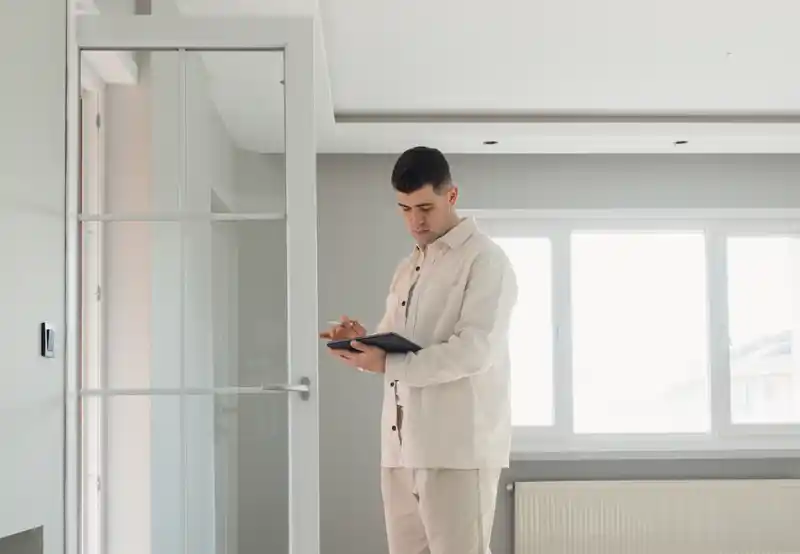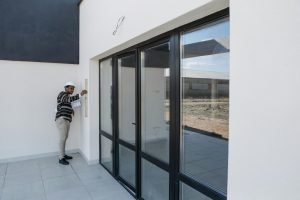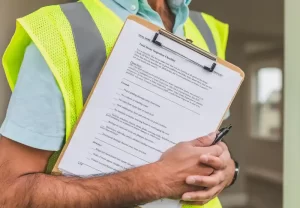Purchasing a home is one of the most significant investments you’ll ever make. While a house may look perfect on the surface, hidden problems could turn your dream home into a financial nightmare. A residential home inspector plays a crucial role in identifying issues that may not be visible to the untrained eye. From structural defects to hazardous materials, an inspection ensures you make an informed decision before signing on the dotted line.
A professional home inspection provides more than just peace of mind—it can save you thousands of dollars in unexpected repairs and future headaches. Many issues, such as plumbing leaks, faulty wiring, or foundational instability, may not be immediately obvious but can have serious consequences over time. Additionally, home inspectors check for potential health hazards like mould, asbestos, and radon gas, ensuring your family’s safety.
This article will explore ten surprising issues a home inspector can uncover, helping you understand why a professional inspection is a critical step in homebuying. Whether you’re a first-time buyer or a seasoned homeowner, knowing what to look for can make all the difference in securing a safe, sound investment.
1. Hidden Water Damage and Plumbing Issues
Water damage is one of the most costly problems in a home, and it often goes unnoticed until it’s too late. A residential home inspector will check for leaks, hidden moisture, and plumbing defects that could cause mould growth, structural damage, or expensive repairs. Common signs include:
- Water stains on ceilings or walls
- Soft or warped flooring
- Musty odours indicating hidden mould
- Corrosion around pipes or slow drainage
Addressing these issues early can prevent major repairs and protect the integrity of the home.
2. Faulty Electrical Wiring and Outdated Systems
Outdated or faulty electrical systems can pose serious safety risks, including fire hazards. A thorough inspection can reveal:
- Knob-and-tube or aluminium wiring (common in older homes)
- Overloaded circuit breakers
- Exposed or improperly grounded wiring
- Malfunctioning outlets or light fixtures
A residential home inspector will ensure the home’s electrical system meets modern safety standards, reducing the risk of future issues.
3. Structural Integrity Problems
The foundation and structure of a home are critical for its longevity and safety. Signs of structural problems include:
- Cracks in walls or ceilings
- Uneven or sloping floors
- Gaps around windows and doors
- Bowing or shifting foundation walls
An inspector can assess the severity of these issues and recommend further evaluation by a structural engineer if necessary.
4. Roofing Defects and Leaks
A damaged roof can lead to costly repairs and potential water intrusion. Common roofing issues found during an inspection include:
- Missing, curled, or damaged shingles
- Poor attic ventilation leading to moisture buildup
- Sagging or rotting roof decking
- Clogged or damaged gutters
A residential home inspector will assess the roof’s condition and provide insight into necessary repairs or replacements.
5. Pest Infestations and Termite Damage
Pests, particularly termites, can cause extensive damage to a home’s structure. An inspection can uncover:
- Termite tunnels or wood damage
- Rodent droppings in the attic or basement
- Carpenter ant or bee infestations
- Signs of past pest treatments
Early detection allows for proper extermination and repairs before the issue worsens.
6. Heating and Cooling System Malfunctions
A faulty heating, ventilation, and air conditioning system can lead to discomfort and expensive repairs. Inspectors check for:
- Inconsistent heating or cooling
- Dirty or clogged air filters
- Leaking refrigerant or damaged ductwork
- Inefficient or outdated systems
Replacing or repairing Heating and Air Conditioning components can be a significant expense, so identifying issues beforehand is crucial.
7. Poor Drainage and Grading Problems
Improper drainage can cause foundation damage, mould growth, and basement flooding. Signs of poor drainage include:
- Pooling water near the foundation
- Mould or mildew in basements
- Erosion around the home
- Water stains on exterior walls
A residential home inspector can suggest drainage solutions to protect your investment.
8. Hazardous Building Materials
Older homes may contain hazardous materials that pose health risks and require costly remediation. A home inspector will evaluate the presence of:
- Asbestos: Found in insulation, siding, and ceiling tiles, asbestos exposure can cause severe respiratory issues.
- Lead-based paint: Common in homes built before 1978, lead paint can be a serious health hazard, particularly for children.
- Radon gas: A colourless, odourless gas that can accumulate in basements and crawl spaces, increasing the risk of lung cancer.
- Mould and mildew: Often hidden behind walls or under floors, mould exposure can lead to allergic reactions and respiratory problems.
Identifying and mitigating these hazards can protect both your health and your investment.
9. Window and Door Defects
Windows and doors are critical for security, insulation, and overall home efficiency. A home inspection can uncover:
- Drafty windows and poor insulation
- Rotting or deteriorating wooden frames
- Broken seals causing foggy or inefficient glass panes
- Misalignment or improper installation affecting functionality
Ensuring these elements are in good condition enhances energy efficiency and prevents costly future replacements.
10. Insufficient Insulation and Ventilation
A well-insulated and properly ventilated home maintains comfortable temperatures and prevents moisture-related issues. An inspection assesses:
- Attic and wall insulation levels: Poor insulation leads to high energy bills and temperature fluctuations.
- Ventilation systems: Inadequate airflow can trap moisture, promoting mould growth and wood rot.
- Energy efficiency ratings: Outdated doors, windows, and insulation materials can significantly impact heating and cooling costs.
Addressing these issues improves indoor comfort and lowers utility expenses.
Protect Your Investment with a Home Inspection
Buying a home is one of the most significant investments you’ll ever make, and neglecting a home inspection can result in unexpected and costly repairs. A residential home inspector provides a detailed assessment, uncovering hidden defects that could impact your home’s safety and value. Whether it’s structural weaknesses, outdated electrical wiring, or plumbing issues, a professional inspection ensures you’re making an informed decision before closing the deal.
Beyond financial savings, a home inspection safeguards your family’s well-being by identifying potential health hazards such as mould, radon gas, or asbestos. By addressing these issues early, you can negotiate repairs with the seller or plan for necessary fixes before moving in.
Don’t leave your investment to chance. Schedule an inspection with a residential home inspector today and step into your new home with confidence.




